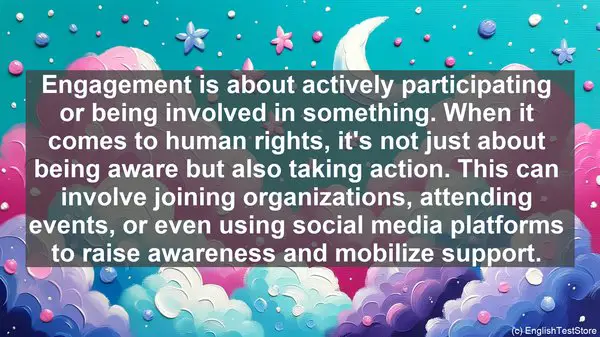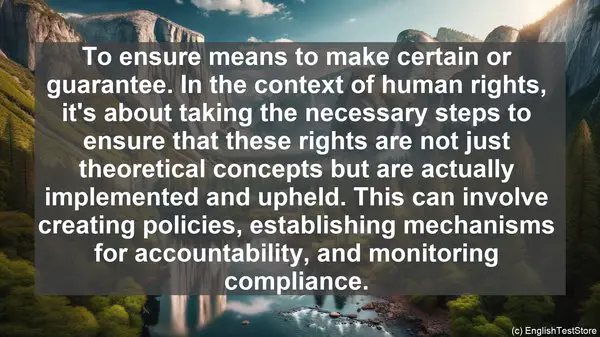Introduction
Welcome to today’s lesson. In this session, we’ll be exploring the top 10 English verbs that are indispensable when it comes to discussing international humanitarian law and human rights. These verbs not only help us express our thoughts but also enable us to actively participate in conversations surrounding these vital subjects. So, let’s dive in!
1. Advocate
To advocate means to support or promote a cause, idea, or policy. When it comes to human rights, advocating for the rights of others is crucial. It involves speaking up, raising awareness, and taking action to ensure that everyone’s rights are protected and respected.
2. Protect
Protection is at the core of international humanitarian law and human rights. As individuals, organizations, or even nations, it’s our responsibility to protect those who are vulnerable or at risk. This can include safeguarding their physical well-being, ensuring access to basic necessities, or even defending their rights in a legal context.
3. Ensure
To ensure means to make certain or guarantee. In the context of human rights, it’s about taking the necessary steps to ensure that these rights are not just theoretical concepts but are actually implemented and upheld. This can involve creating policies, establishing mechanisms for accountability, and monitoring compliance.
4. Promote
Promotion is about actively supporting and encouraging the realization of human rights. It goes beyond just acknowledging their existence. It involves creating an environment where these rights can thrive, whether through education, awareness campaigns, or even legislative measures.

5. Violate
Unfortunately, human rights violations are a reality in many parts of the world. To violate means to break or disregard a law, agreement, or principle. When discussing human rights, understanding and addressing these violations are crucial. It can involve documenting abuses, seeking justice, or even advocating for policy changes.
6. Address
To address means to deal with or tackle a problem or issue. In the context of human rights, it’s about not just acknowledging the existence of a problem but actively working towards its resolution. This can involve engaging in dialogue, implementing reforms, or even providing support to those affected.
7. Uphold
To uphold means to maintain or support something, often in a moral or legal sense. When it comes to human rights, upholding them means not just ensuring their existence but actively defending and protecting them. This can involve challenging discriminatory practices, providing legal representation, or even advocating for policy changes.
8. Empower
Empowerment is about enabling individuals or communities to have control over their lives and make informed decisions. In the context of human rights, it’s not just about providing assistance but also fostering self-sufficiency and independence. This can involve providing education, skills training, or even creating opportunities for economic growth.
9. Engage
Engagement is about actively participating or being involved in something. When it comes to human rights, it’s not just about being aware but also taking action. This can involve joining organizations, attending events, or even using social media platforms to raise awareness and mobilize support.

10. Collaborate
Collaboration is about working together towards a common goal. In the context of human rights, it’s often essential as these issues are complex and multifaceted. By collaborating, whether with other individuals, organizations, or even governments, we can pool resources, share expertise, and have a greater impact.
